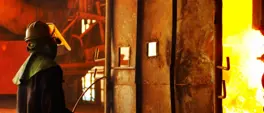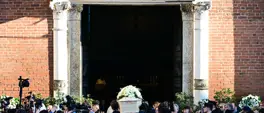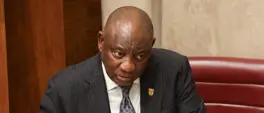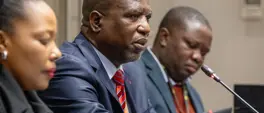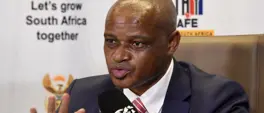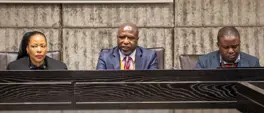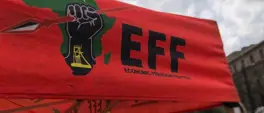MALAIKA MAHLATSI | Dear Executive Mayor, this Johannesburg that you are not serious about is our home
Malaika Mahlatsi
9 May 2025 | 15:06Malaika Mahlatsi reflects on Joburg Mayor Dada Morero's State of the City Address and concludes that it does not address the seriousness of the challenges the city is facing.
I want to reflect on the State of the City Address that was delivered by City of Johannesburg mayor, Dada Morero, this past Wednesday. I want to preface this with a personal statement and to state that I write this article as a lifelong resident of Johannesburg – as a young person who was born and raised in Soweto and who, even as I am now a legal resident of Germany, maintain primary residency in a Johannesburg that I love and cherish deeply. Johannesburg is at the core of my identity.
I show up to the world as Malaika whose political consciousness was birthed in Johannesburg. My parents met as student activists and members of the Soweto Youth Congress.
My mother gave birth to me at Meadowlands Clinic, and so, it is in the soil of Soweto where my umbilical cord is buried. My activism was not born in the corridors of Rhodes University as a branch secretary of the South African Students Congress (SASCO) or the gatherings of the #RhodesMustFall and #FeesMustFall at the university’s purple square, but at Bapedi Hall in zone 3 Meadowlands, where my mother and the late uncles Bathandwa “Baps” Godlo, Sipho Makama, Clifford Sedibe and Katishi “Dallas” Masemola used to sit me on their laps in meetings of the African National Congress (ANC).
It was through conversations with uncles Norman Ngwedzeni, Fred Mokoko, Strive Ralekgoma, aunts Ndivhuwo Sekoba, Gadifele and many others that I became aware of the history that Black people carry on their backs.
Johannesburg is the resting place of my mother. It is the place where all my dreams gestated and where my aspirations were born. Johannesburg is home. It is for this reason that I will always have a house in Johannesburg, no matter where else in the universe I may choose to reside.
I pay my rates and taxes to this city’s municipality and I will always do so. I love Johannesburg. And it is because I love Johannesburg that I cannot accept that Morero should stand before us, in a time of crisis, and deliver a SOCA that is devoid of substance and inspires no confidence. And make no mistake, the City of Johannesburg is in a state of crisis.
What was once touted as a “world-class African city” has been reduced to a city in a state of decay, with major infrastructure crumbling before our eyes.
The streets that I used to walk on and travel to school on in a Putco bus have become riddled with potholes. Traffic lights are not working in literally every neighbourhood, including the heart of the city’s economy in the north. From Fourways to the centre of Sandton, Kyalami to Midrand, young men whose geo-histories have been impacted by the legacy of colonial and apartheid violence, and dreams shattered by maladministration in the post-apartheid dispensation, direct traffic in the scorching heat and in pouring rain, just to get R5 coins from motorists.
These young men, some of them my age, children of the 1990s like me, have been so emasculated by the structural violence and poverty of our city that to direct traffic is the only way they can participate in this country, in this economy, that has hurled them to the periphery.
When Morero stands before us to deliver a SOCA in this climate, one expects to hear a clear plan of action on how Johannesburg is going to arrest the decline. But this is not what he does. Instead, he delivers a mockery of an address that pats former ANC mayors on the back without providing a meaningful context to the barometer of struggle and transformative interventions that worked and those that could not, and why this was the case.
He does not provide details on how such instruments as the Economic Recovery Plan of the city are being implemented and monitored, or what mechanisms are in place to unlock the city’s investment pipeline.
Instead, he speaks about how certain countries around the world could “showcase” their abilities to help the city – how countries such as Japan could facilitate skills development programmes because “the majority of taxis and minibuses in Johannesburg are your brand”. Has the City engaged with these countries? What is the progress of those engagements? What are the timelines of delivery and implementation?
A city as important as Johannesburg cannot be run on a hope-and-pray strategy where a mayor hopes countries will have the moral conscience to invest. A bold investment strategy is needed – and the SOCA did not even begin to outline one.
Morero speaks about how revitalising the inner city is “personal” but does not engage with the very serious issue of growing gentrification and studentification that is displacing working-class communities and contributing to the cost-of-living crisis that has caused the growth of tenements in the city.
Morero pontificates about ensuring water security and touts Joburg Water as a champion of this endeavour, but says nothing of the impediments that confront the water and sanitation utility. Beyond incapacity, these include a massive R3 billion it needs to address water infrastructure backlog and improve water supply reliability, for which there is no clarity on where it will come from. Meanwhile, residents across Johannesburg continue to experience severe water security challenges that are collapsing small businesses and interfering with teaching and learning.
When you think the SOCA cannot get more depressing, Morero touts the creation of a “Bomb Squad” to address issues that officials within the city are employed and must be capacitated to resolve. This is the very definition of institutional fundamentalism – the creation of new institutions to resolve institutional problems. It has become a feature of governance in South Africa under the presidency of Cyril Ramaphosa, who is himself an institutional fundamentalist.
But rather than resolve problems, these new institutions erode the capacity of the state by duplicating functions that belong within departments and units, rendering officials ineffective. If Morero believes that officials in the city are ineffective, then why are they still employed or at least, not being adequately capacitated? Why must we, residents and taxpayers in Johannesburg, pay stipends to former senior government officials who will make up this “Bomb Squad” when we have people employed in the city for the job?
Morero then goes on to rhetoric about revenue collection, something that is and will remain a challenge in an economically depressed city. What we needed to hear were details about a Revenue Enhancement Strategy, similar to what the Gauteng Provincial Treasury has presented to the province. Such a strategy must outline the instruments and mechanisms that will be utilised or developed to enhance the city’s revenue. None of these details were provided, even briefly. And so, we are left unsure of the plan of action for revenue generation.
Morero also makes some legally questionable and bizarre proposals, including the rotation of senior managers. These are Section 56 managers who are appointed by Council under the Municipal Systems Act, based on the specific requirements of the jobs they applied for.
The idea that these people can be moved willy-nilly by an Executive Mayor, who is not empowered by any law to do what he is proposing, is outrageous. There is a reason why recent legislative amendments to the Municipal Systems Act draw a stronger line between the political and the administrative in municipal government. Morero should know better. He further proposes the rotation of members of his mayoral committee. For what reason and to what end?
I could say a lot about his requests to residents of the City to comply with municipal by-laws and to not vandalise public infrastructure. But what I will say is that you cannot lead people with whom you do not have a social compact that is constantly evaluated.
This idea that people are recipients of the state’s charity and instructions undermines their ability to meaningfully engage and be engaged in issues that affect their lives. It is captured most aptly by Phindile Kunene, an activist educator and the head of democracy and political culture at the Friedrich-Ebert-Stiftung, who, in an article published by the Sowetan a month ago, argues for engagement with citizens as a means of addressing the destruction and steady erosion of Gauteng public infrastructure.
I want to reiterate that I love Johannesburg. I, and all the millions of residents who call this city home, deserved a SOCA that demonstrated a deep appreciation of the seriousness of the challenges that we are facing. We deserved a plan of action with clear demonstration of political will to turn things around.
We deserved something to give us hope in times of crisis. We deserved a vision that we could support. What we received, instead, was a SOCA that lacked in imagination and serious political strategy. It was a SOCA that affirmed that we have a collective leadership in Johannesburg that is engaging in a calamitous retreat from the habit of thinking. It is gut-wrenching.
Malaika is an award-winning, bestselling author, geographer and researcher at the Institute for Pan African Thought and Conversation. She is a PhD in Geography candidate at the University of Bayreuth in Germany.
Get the whole picture 💡
Take a look at the topic timeline for all related articles.

